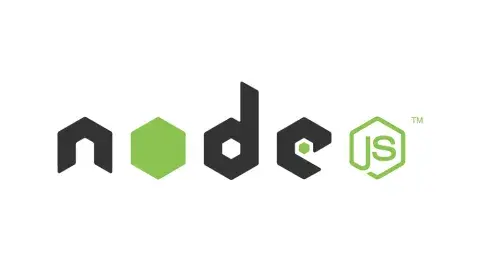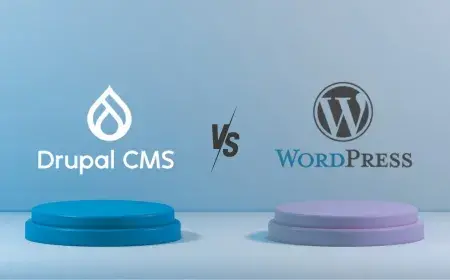There's no such thing as “the best web technology” but “the best technology for particular use cases”! For your web projects' particular needs:
- do you want it developed fast or do you want it to work fast?
- what's crucial for your specific project: that your web technology should scale great or that it should be flexible and IDE friendly?
- do you value a highly expressive language or one that's the same on the server and on the client's side (for back-end and front-end)?
Take some time to answer the above questions. Then see if can find your priority features and the capabilities that you're looking for in a web technology and whether your project fits any of the use cases for Node.js that we'll be pointing out here below. Keep reading...
But First: What Is Node.js?
Just a few words about this web technology competing for the “chance” to power your future web project:
- a JavaScript platform or “runtime environment” if you prefer
- built to enable you to develop fast and highly scalable server-side apps
- comes with a unique I/O model which makes it particularly lightweight and excellent for handling big flows of data (real-time situations handling a ton of requests)
Reasons Why Node.js Is Increasingly Popular
And here we're thinking about companies such as Uber, LinkedIn and... NASA that saw huge potential in Node.js!
But don't take these brands/enterprise names as unique arguments for jumping on the Node.js trend! Better scan through, ponder on and put the following reasons for why you should be choosing this technology against your own project's needs and particularities:
- your development team will get to use the same language, both on the client and on the server side (so both on the front-end and the back-end); this can only lead to an efficiency boost and to reduced development costs (since your front-end and back-end developers will then be cross-functional)
- the same feature practically speeds up the whole development process (parts of your app can get shared and reused from the back-end to the front end and vice versa)
- Node.js is a full-stack technology: you get everything you need for Node.js to work all in one package, from the HTTP server to the templating engine
- it's free and open-source technology
- it loads fast (and here we're comparing it against Ruby on Rails)
Use Cases Where Node.js Works Best
1. For Developing Real-Time Apps
If it's a real-time app that you're planning to build, then Node.js makes THE excellent choice. It's built to:
- make sharing and reusing of library code packages a breeze
- handle heavy loads of concurrent client requests depending on instant response time like no other rivaling technology out there
- speed up the client-server data sync
- process massive loads of data in real time
But let's talk facts!
Meaning specific examples of “apps/sites where:
- big flows of data need to get processed in real time
- multiple connections are simultaneously active and requiring immediate response time (relying on asynchronous interactions, like Quora.com for instance)
So here it is, our list of real-time app examples, of use cases where Node.js works best:
- chat apps (instant-messaging, live-chat apps)
- collaboration tools: drawing/editing-type apps
- e-commerce transaction apps
- video conference apps (depending on VoIP and specific hardware to work)
- multiplayer games/online gaming apps
In short: Node.js isn't the unique solution, in terms of web technology, to develop your real-time app with, yet the:
- unmatched performance that it will turbocharge your future app with (it can handle big data flows and multiple requests and all this without compromising on page load time)
- ease of development that it “lures” you with
… do put it on top of your potential web technologies to power your app with!
2. For Building Single-Page Apps Heavy on Processing on The Client Side
Is it a single-page app site that you're planning to build? One of those modern web apps dealing with a lot of rendering, of processing on the client's side mostly (having a back-end playing a single role: providing a JSON API)?
Then you can't choose a more appropriate web technology!
Thanks to its unique I/O model, Node.js is equipped to process high volumes of I/O driven requests and data sharing tasks (e.g. the validation code shared between the client and the server)
In other words: it's a powerful technology “capable” to handle great piles of instant data, of IO-bound requests, one that should scale easily and process the multitude of requests at high speed that you're building, then Node.js is the one for the job!
Note: do keep in mind, though, that if it's more than shuffling data around that you need your web technology to excel at, if there's a lot of CPU processing (e.g. image processing) involved, then you might want to consider other technology for your web project!
3. For Building Streaming-Data Apps
Node.js does a remarkable job, thanks to its capabilities to process massive loads of data in real-time when it comes to supercharging streaming apps.
Let us give you just a few examples of data streamlining tasks where you could leverage Node.js's capabilities:
- encoding files while uploading them
- uploading files in real-time
- building proxies between layers of data
4. For Building REST/JSON APIs
Facing the challenge of wrapping web services or data sources (so other data sources) and displaying them via a JSON or a REST programming interface? Node.js will “save the day”, once again!
Since it:
- runs on Javascript
- “boasts” with a one of a kind I/O model
… it makes the handiest tool/web technology for you to go for whenever it's APIs that you need to build!
Does any of these 4 ideal use cases for Node.js match your own? Do this platform's features and functionalities meet your specific web project's needs? If so: entirely or just partially?








